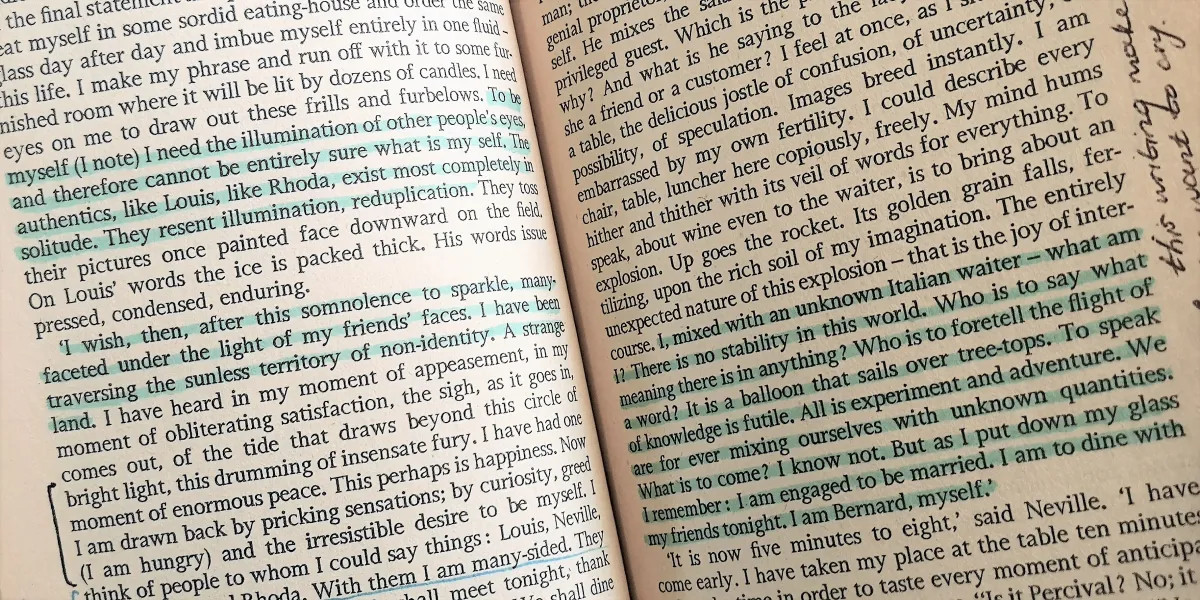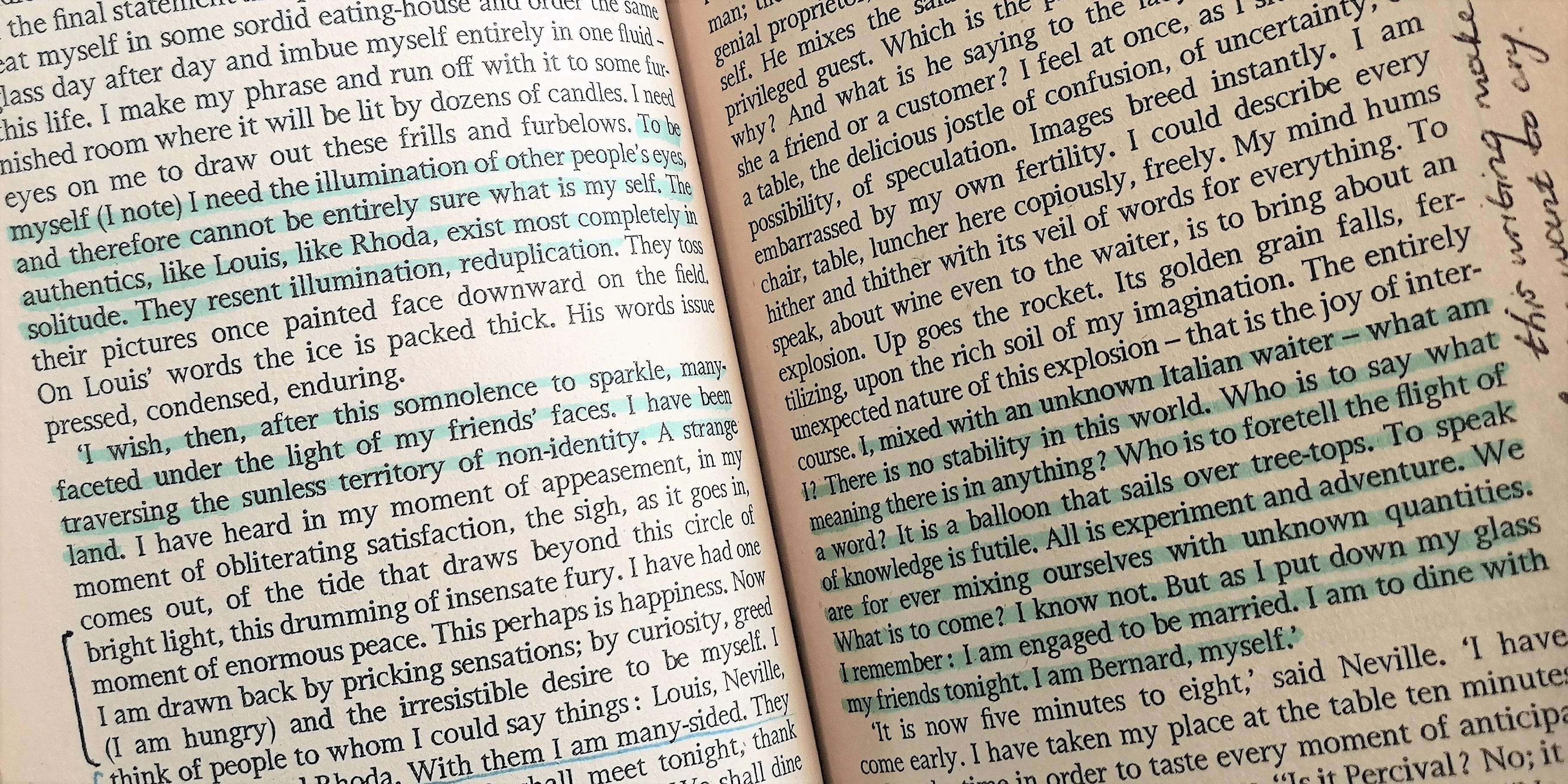Why you should write in your books
The value of an imperfect book

I used to be one of those people who wanted their books kept in pristine condition so their shelves could replicate those of a curated bookshop.
In my world, dog ears and marked pages were sins almost equivalent to theft. But I’ve come to realise that that obsession with a book’s materiality might be, like theft, a form of greed in itself. A pursuit of material perfection.
Writing in the margins of a text, highlighting paragraphs, and circling words are, however, part and parcel of being an English student. So when I started university, it was only natural for some underlining and a few asterisks to begin appearing on the pages I read. First on the edges of post-it notes and then, though hesitantly, in pencil. Soon enough, it felt wrong to be flipping the pages of a book without at least two pens and a highlighter in hand.
I quickly understood the importance and even the necessity of writing in books, of making them my own, and of changing them just as they change me.

This week I had the pleasure of attending a couple of events at the Oxford Literary Festival, one of which was a lecture about books and their histories. David Pearson, the author of Speaking Volumes: Books with History, gave a talk about why books are so much more than the words printed inside them.
Pearson explained that each book, as soon as it leaves its publisher, has a unique life. But their lives depend on how we choose to use and interact with them. It’s those tangible interactions — the ones that leave marks, cracked spines, and folded pages — that give a book its value.
Annotations, whether intellectual or otherwise, tell us so much more than just a reader’s thoughts. If over the centuries readers left their books unscathed and free of any signs of life, we would likely never know about the ways certain books impacted society, affected people’s ideas, and changed cultural values.
Pearson went on to emphasise the importance of annotated books in the technologically-oriented world we now find ourselves living in. If a literary text can be duplicated on a screen and read online, what gives a physical book its worth? With nearly every text now having a digital existence, the peculiarities of a book — the things that distinguish it from the ones sitting on a bookstore’s shelf — become invaluable.
The stories of our own lives are embedded in the words and scribblings we leave behind in our books. It can start with a simple inscription on the title page or your initials on the front cover. In marking our books, we mark history too.
If you’ve found value, joy, or comfort in The Kulturalist, consider clicking the button below to support my work. Your generosity keeps the words flowing. Thank you for being here!





